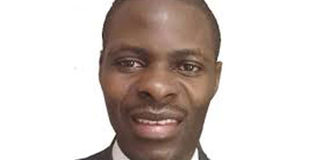America, Trump and politics of our times

Moses Khisa
What you need to know:
- The US is such a complex society that defies easy answers and rushed conclusions.
- In the past months and especially since the night of November 3, when American went to the polls, I was struck by the army of Ugandan ‘experts’ on American politics that proliferated on social media.
In 2016, American voters chose an unusual president: A billionaire businessman and TV celebrity. It was a bitter and bruising contest for the most powerful job in the world.
Donald Trump was not expected to win, but in the end, he triumphed courtesy of a rather strange and unique system of choosing a president called the Electoral College. He won even after receiving three million votes less than his opponent’s.
The losing side conceded, but only grudgingly. Many accepted his win, but not his leadership. From day one to date, Mr Trump has singularly supplied the fuel for an unprecedented political divide in America. Right in the middle. Those who support him do so with unparalleled passion and unwavering commitment; those opposed to his leadership are decidedly strident and unrelenting.
The two main political parties, and their respective ideological positions, have a long history of irreconcilable differences, but in recent years, political polarisation has deepened to alarming levels. Today, the great United States of America, with a history of more than 200 years of continuous competitive and healthy electoral politics, finds itself in unfamiliar territory: The incumbent president has openly and explicitly stated that last week’s presidential election was fraudulent.
As surreal as it may sound, President Trump’s stance was not unexpected. In the course of campaigning, he insisted he would only lose if the election was stolen. During the two televised presidential debates, he declined to commit to a peaceful handover of power in the event he lost, insisting he was not going to lose! That is, either he wins or the election is rigged.
Not being a US citizen and having never participated in the elections despite a decade spent here, I have zero knowledge of the actual electoral processes and how elections are managed.
But I gather from those knowledgeable enough that it is close to impossible for anyone to engineer election rigging in the US to the extent that influences the result.
The system is so decentralised to the county-level and often managed by representatives from both parties, as well as non-partisan officials. What is more, one has to win state by state and get at least close to a majority of all states to be able to generate enough Electoral College votes even if he or she won the total popular vote.
Now, not all states are actually fiercely competed for. The competition boils down to a few, but this year, these were as many as a dozen, meaning one has to pull off a rigging strategy in majority of these dozen States all with different rules and State-level leaderships from both parties.
The jury is still out on the veracity of voter fraud allegations, but it appears highly unlikely that there was widespread malpractices and wrongdoing as to have tilted the outcome against Mr Trump.
In any event, Trump’s 2016 election and his determination to stretch American institutions to the limit underscores the strained political environment of our times. Whatever one may say about his style of leadership and the substance of his policies, Mr Trump’s election was no accident and the plurality of support he commands among Americans cannot be easily dismissed.
Over the past decades, income and wealth inequality has gone through the roof as many, especially low wage and less-skilled, Americans have struggled to stay afloat. The riches and rewards of this great nation are not fairly distributed.
And this is not unique to the US although matters have worsened arguably more than anywhere else among the economically developed countries.
Status quo politics and policies have tended to serve the interests of the politically connected and the privileged classes, while the poor and low income earners are trapped in precarious conditions.
The US is such a complex society that defies easy answers and rushed conclusions. In the past months and especially since the night of November 3, when American went to the polls, I was struck by the army of Ugandan ‘experts’ on American politics that proliferated on social media. They have given ‘expert’ analyses complete with unequivocal pronouncements and unmeasured assuredness.
American institutions may be under severe stress in the face of an unconventional president and under circumstances of hardships compounded by a pandemic, but to think that the American political culture and American people are beaten down is a bad bet.
Mr Khisa is assistant professor at North Carolina State University (USA).
[email protected]




